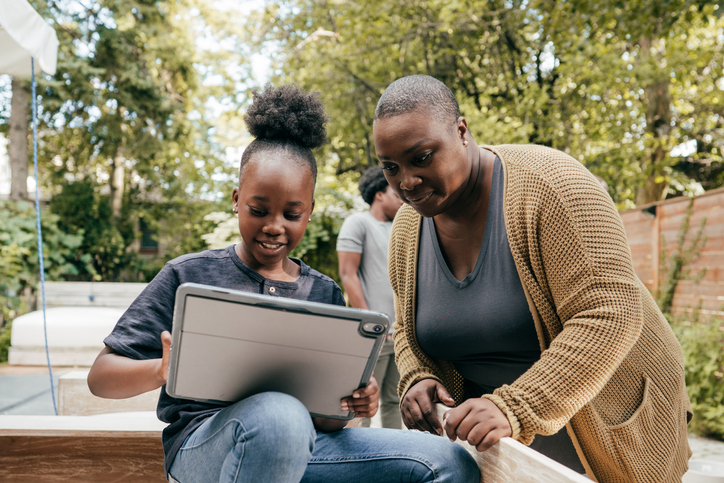
Source: kate_sept2004 / Getty
There are a multitude of reasons why you may want to consider homeschooling your children beyond our nation’s present health crisis. Perhaps your child has an underlying health condition, which means that COVID-19 will always be a potential threat. Maybe you’d like to have more control over what your children learn each day. Maybe racial biases held by teachers and administrators in your district have led to unfair treatment of one or all of your children. For Stephanie Carter, author of Trials and Successes: Effective Teaching and Learning at Home, the decision was made when she came to recognize that the unique personalities and learning styles of her two sons might make learning in a traditional setting challenging.
“Well, I just saw from the very, very beginning that my children thought differently, just conceptually and the way they interact,” Carter told MadameNoire. “Particularly, my youngest son was very hyper at that time. At first, he was diagnosed with ADHD and I was like, ‘No, it’s not that. Unfortunately, they automatically just diagnose little Black boys this way if they’re a little hyper. And so he got retested and turns out he’s high functioning on the autism spectrum.
“I was just like not sure about how they would be treated, especially my youngest son. I did not wanna medicate him or anything like that. So that’s when I began looking into homeschooling. We also wanted to do homeschooling to expose our children to an Afrocentric education and to know more of the achievements of Black people all year round, not just in February. Now, we’ve been doing it for eleven years. My, my oldest son is in tenth grade. He’s 15. My youngest is in eighth grade and he’s 13. They’re doing very, very well. So I definitely believe that was the best choice.”
Like many other Black moms, you may have been curious about removing your child from the traditional school setting for quite a while, but some misconceptions may have deterred you. Here are some of the more common myths we’d like to debunk:
It’s not possible to home school special education students
Homeschooled special education students are generally able to receive services and specialized learning plans just as they would if they attended traditional public schools.
“Instead of IEP (Individualized Education Program), they’re called the SEP, which is student educational plan,” Carter explained. “So it’s basically a written plan of the accommodations that you might be able to receive from a local school system. It depends on the jurisdiction, too. Some jurisdictions allow homeschooled children with special needs to actually get services from the local school system. Others require you to actually have them enrolled in the school system and others are like a hybrid when half of the time they spend at a home, half the time spent in the schools.”
Homeschooled children can’t take state exams
Though standardized tests catch a bad rap, depending on how they’re used, they can serve as a helpful benchmark for educators in regard to student progress. While some may assume that state exams are unavailable to students who homeschool, that is actually not the case. While some states require homeschooled students to take achievement exams, other states make it optional.
“You have the choice to take standardized tests,” Carter shared. “Personally, I do not. I’ve had my son take a standardized test maybe like once in his life in sixth grade. A lot of parents like to do that to see if the children are on par, but it is not a requirement, at least not where I am in the state of Maryland.”









